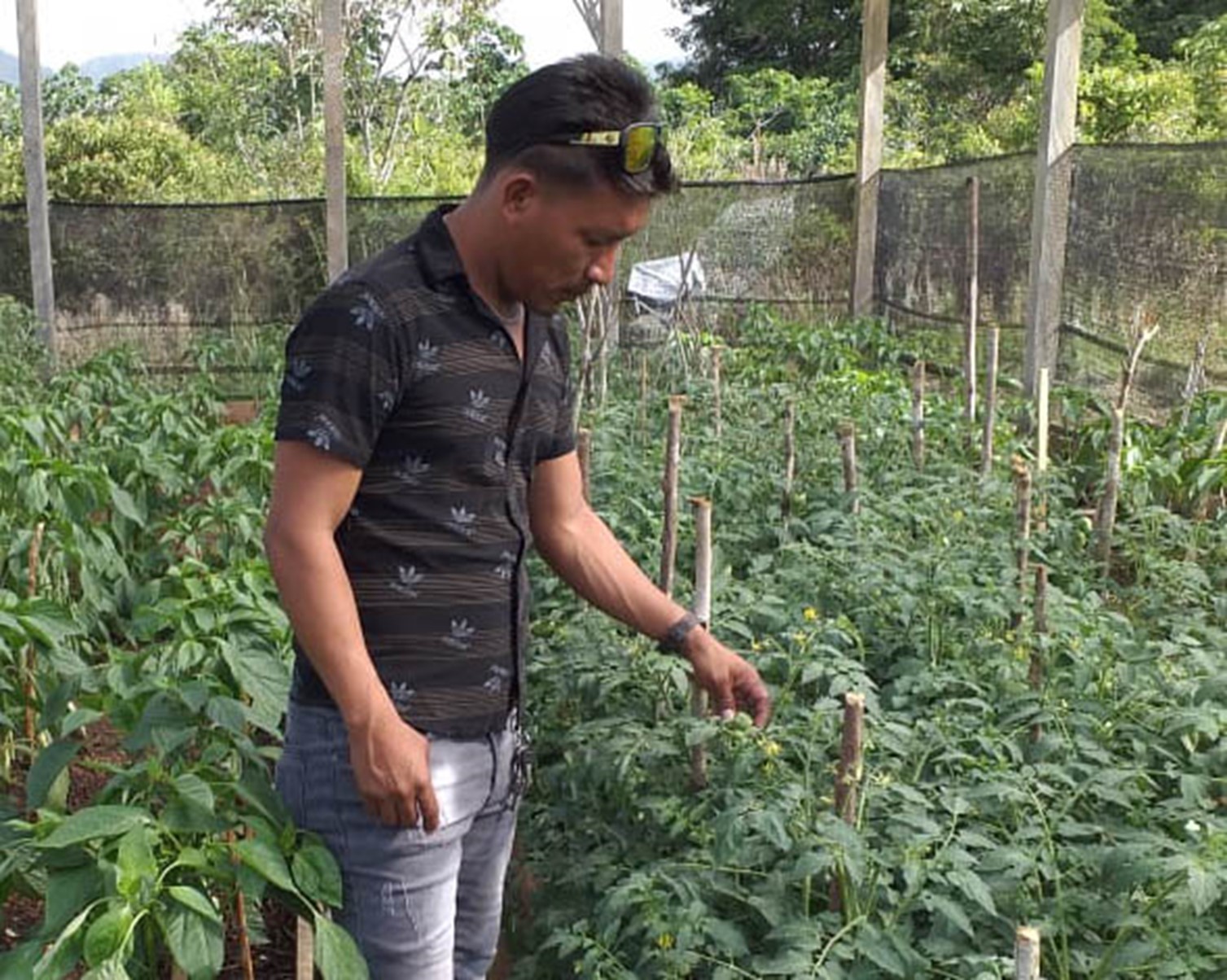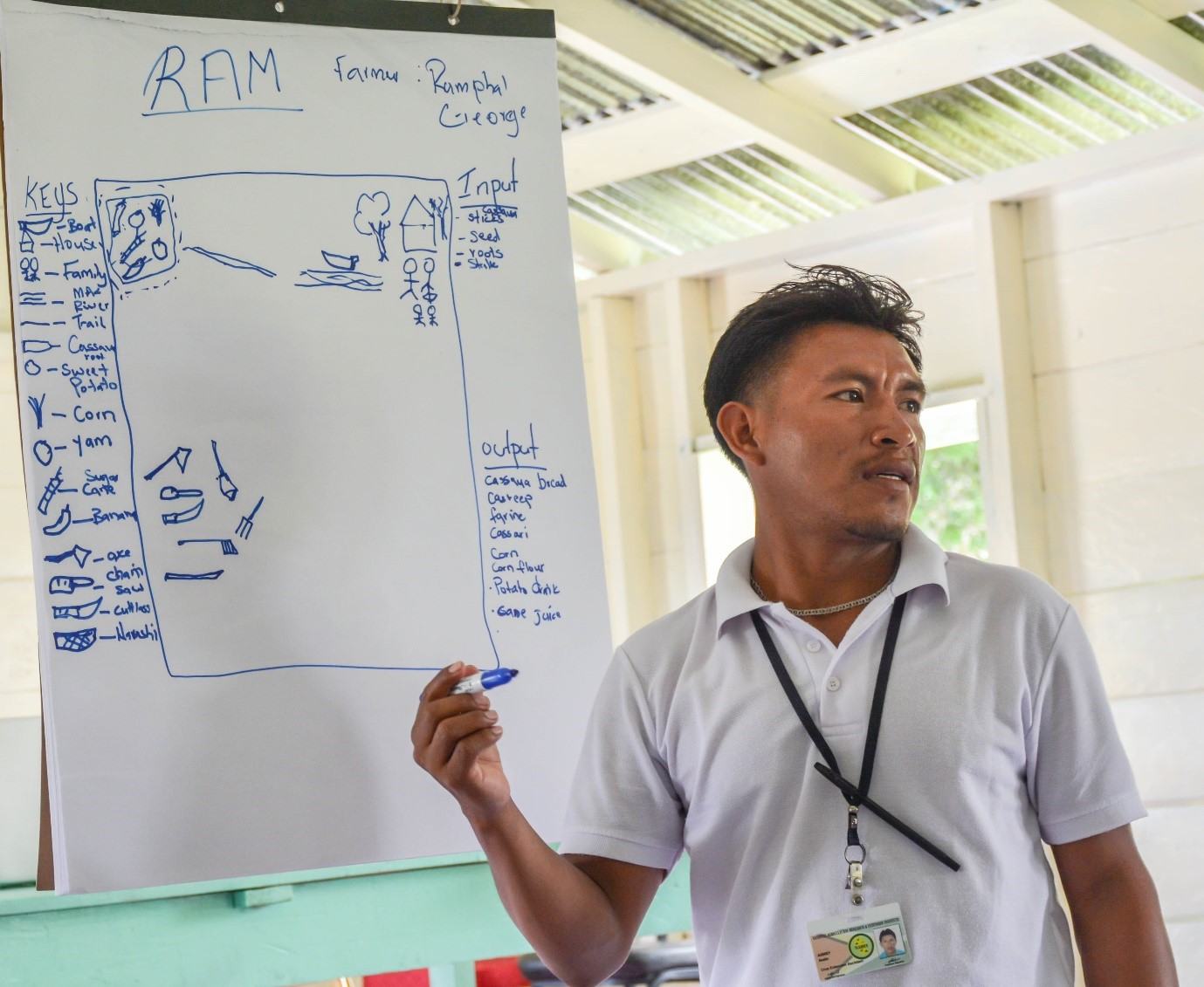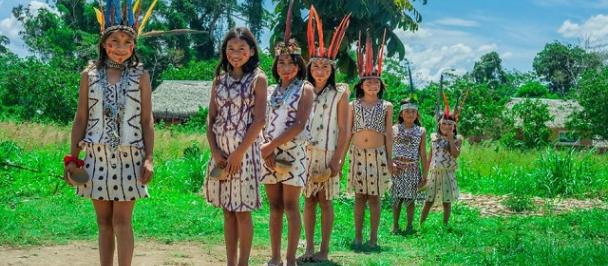Enhancing food security in Upper Mazaruni, Region 7
Bridging the Language Gap: The role of Indigenous Agriculture Extension Officers in Delivering Climate Services to Farmers in Guyana
June 4, 2021
Ms. Aubrey Austin inspects tomatoes at a shade house in Paruima Village, Upper Mazaruni (Region 7), Guyana.
“If I speak to the farmers in English, I have to break down my words level by level in very small parts. But if I speak in Akawaio, they understand me right away” said Mr Aubrey Austin, District Crop Extension Officer, Region 7.
While Guyana is an English speaking Country, several indigenous languages are spoken, hence it is beneficial to have Agricultural Extension Officers who can speak the local language. Mr. Austin, who is attached to the National Agriculture Research and Extension Institute (NAREI), communicates with farmers in the Akawaio language. This interaction has led to him fostering close relationships, especially with the older farmers who cannot understand English.
In Region 7, the main languages spoken among indigenous farmers are Akawaio and Aracuna. Translated materials for agriculture purposes is nonexistent, therefore, Mr. Austin’s role in ensuring local farmers receive information orally cannot be underscored.
Mr Austin’s duties are many, which includes collaborating with the United Nations Development Programme and the Ministry of Agriculture Hydrometeorological Services to train smallholder farmers to integrate climate information in their agricultural practices using the Participatory Integrated Climate Services for Agriculture (PICSA) tool. This training is being implemented as part of the Japanese government funded project, “Strengthening Disaster Management Capacity of Women in the Cooperative Republic of Guyana and Commonwealth of Dominica.”
Mr. Austin facilitates a training session on the Resource Allocation Map (RAM) in the Akawaio language.
At training workshops, the project ensures that the PICSA tool is communicated to the target community by involving local Agriculture Extension Officers who can communicate with farmers in their local language. This initiative enables the flow of information on agricultural and climate concepts, to and from the Farmers, in their mother tongue.
“We are thankful that we can have presentations in Akawaio because our elders cannot understand English” said Ms. Kayleen George, a farmer from Warwatta Village who participated in a PICSA training workshop. “I was not aware that Fox eats our corn, but from the response by the elders, I now know” she continued.
Communicating in the Farmers’ local language is advantageous for Mr. Austin’s work since it gives him an in-depth knowledge of their traditional farming practices. This Indigenous Agricultural Knowledge enables him to integrate new practices, such as Climate Smart and Disaster Risk Reduction Agriculture, into traditional practices of Indigenous Farmers.
As an extension officer, Mr Austin is successfully bridging the language gap between insiders and outsiders of communities in Region 7. Using the local language, through the PICSA tool, he is ensuring that farmers, especially the elders, are equipped with the relevant information to address a varying and changing climate.
UNDP in collaboration with the Ministry of Agriculture Hydrometeorological Services and the National Agriculture Research and Extension Institute (NAREI) will continue this training in other regions to enhance farmers’ capacity to alleviate the impacts of disasters and climate change.
For more information or media inquiries, please contact: Jason Chacon, Project Manager – Disaster Risk Management (DRM): jason.chacon@undp.org | 592-226-4040 Ext: 252
UNDP is the leading United Nations organization fighting to end the injustice of poverty, inequality, and climate change. Working with our broad network of experts and partners in 170 countries, we help nations to build integrated, lasting solutions for people and planet. Learn more at www.undp.org or follow at @UNDP.
Related articles:
Training of Trainers Launched to Strengthen Disaster Management Capacity in Agriculture
Enhancing Livelihoods in Disaster Prone Communities
Addressing Food Insecurity and Gender Stereotypes in North Rupununi

 Locations
Locations

